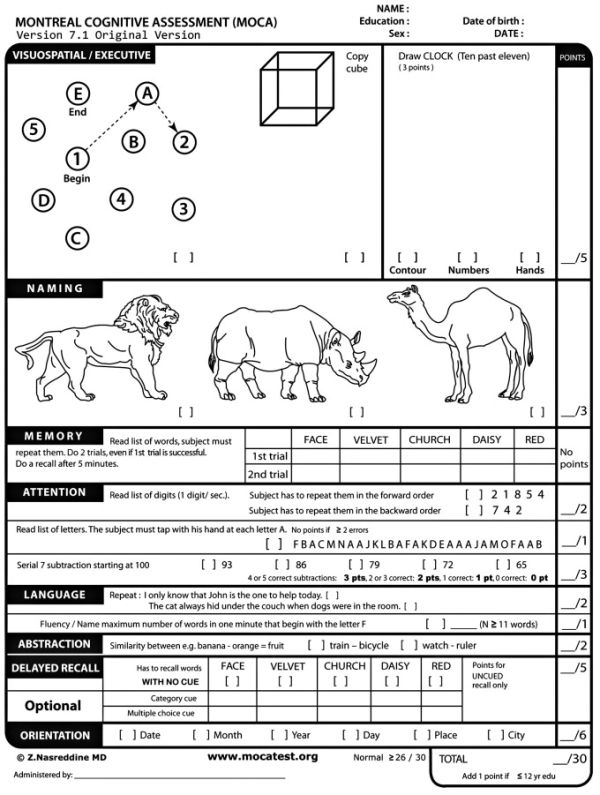Montreal Cognitive Assessment (MOCA)
Last edited on : 29/08/2024
The Montreal Cognitive Assessment (MoCA) is the most sensitive rapid assessment test, with the broadest range of cognitive functions (attention, concentration, executive functions, memory, language, visuo-constructive abilities, abstraction, calculation, orientation). It is tending to replace the MMSE in clinical practice.
A score of less than 26 (25 in the case of a cultural level of no more than 3, equivalent to a primary school diploma or CEP) is considered abnormal and, unless there is an obvious explanation (depression, incompliance), should lead to the prescription of a cognitive assessment by a neuropsychologist.
It can be printed / downloaded with its standards as a pdf :

As a reminder, the suspicion of a dementia syndrome (or of a loss of autonomy or depressive affects in an elderly patient) should lead to a first-line examination:
- A complete history and clinical examination
- Cognitive assessment using MOCA or MMSE + BREF
- A mini-Cog is an acceptable alternative to systematic screening (to be carried out annually on all geriatric patients).
- Assessment of autonomy via an IADL (ideally, compare answers with someone close to the patient)
- Affect assessment via a GDS
Author(s)
Dr Shanan Khairi, MD
Bibliography
2015 Review of consensus versions of cognitive tools according to GRECO (Groupe de Réflexion sur les Evaluations Cognitives)
Nasreddine ZS et al, The Montreal Cognitive Assessment, MoCA: A Brief Screening Tool For Mild Cognitive Impairment. J Am Geriatr Soc 53:695-699, 2005